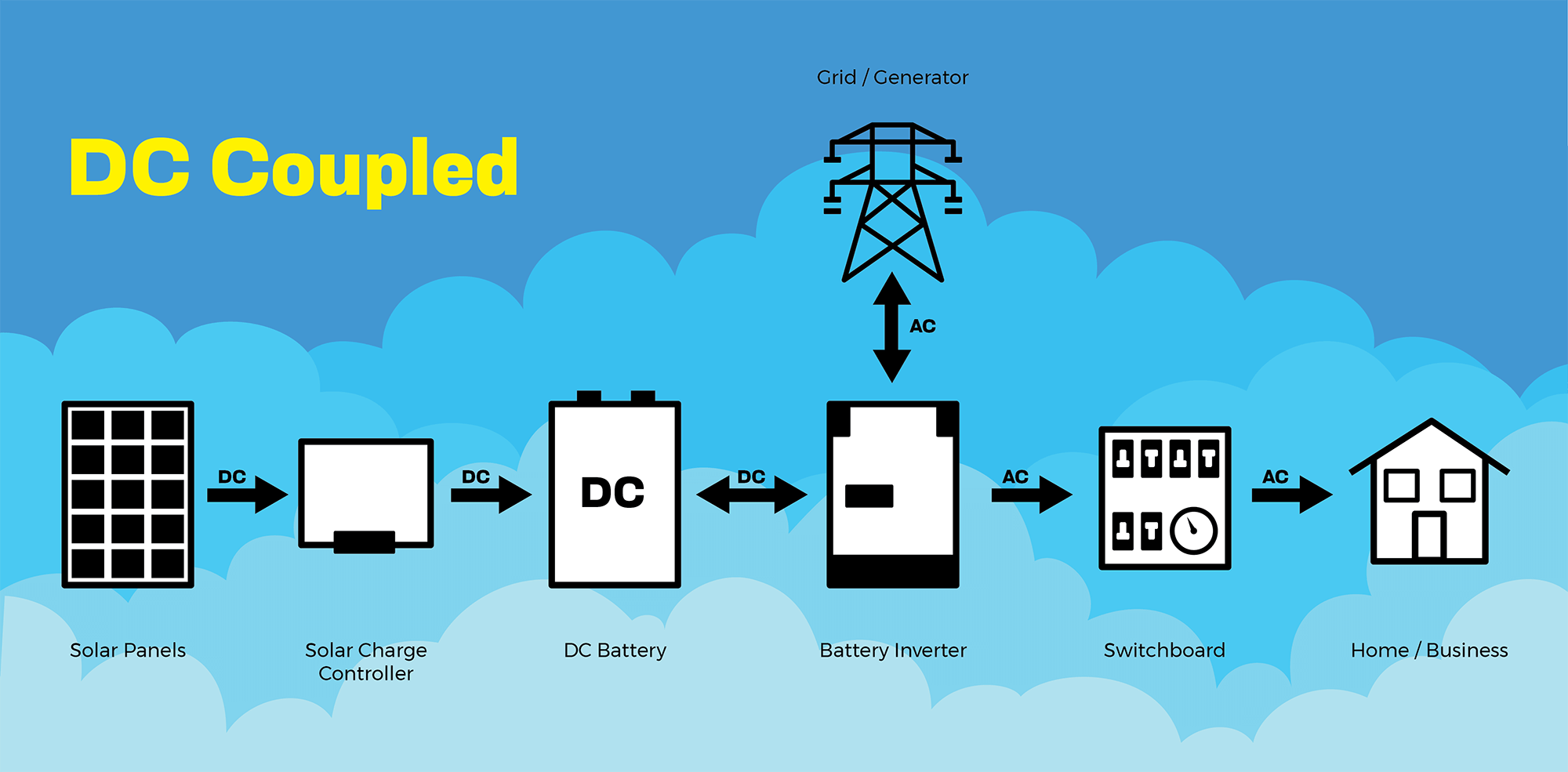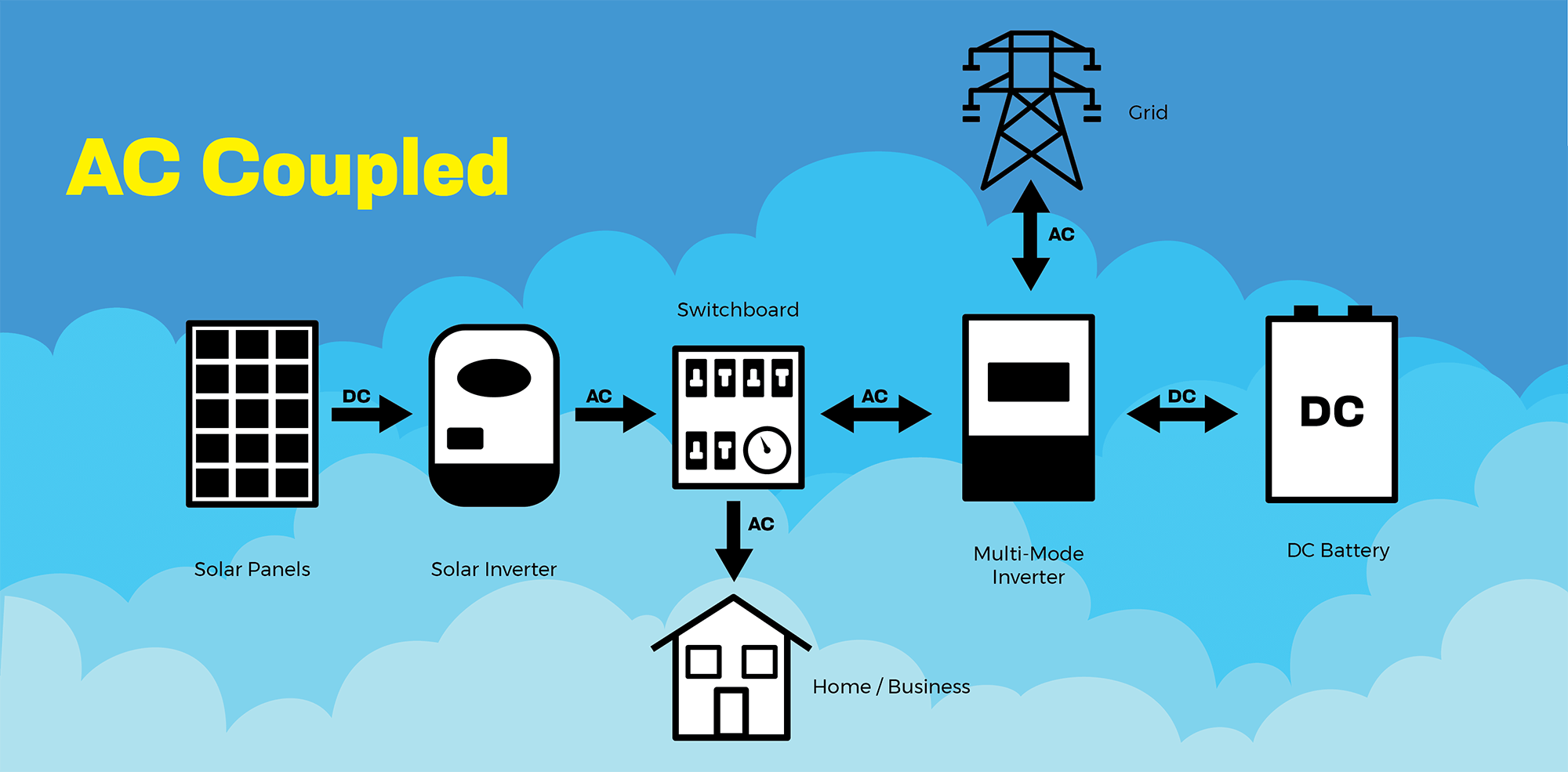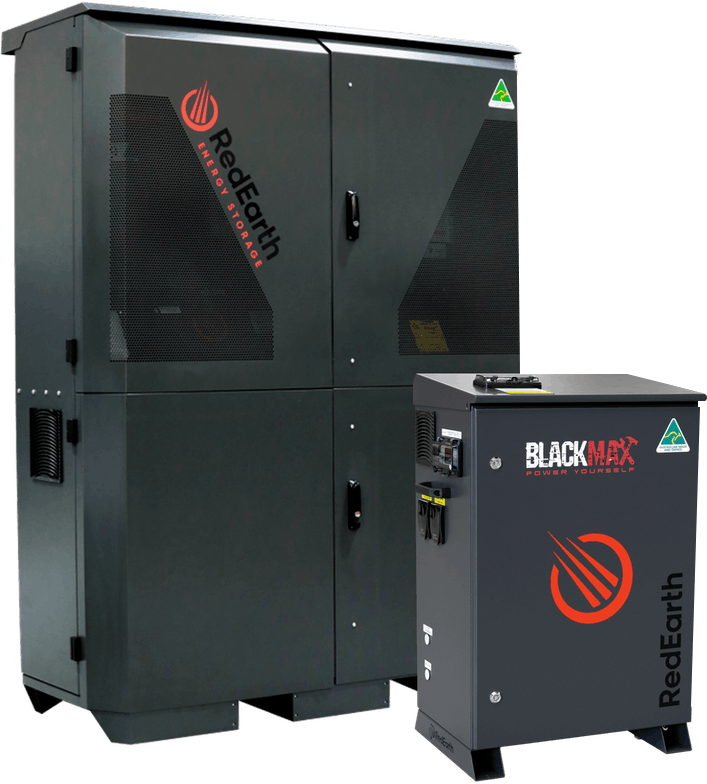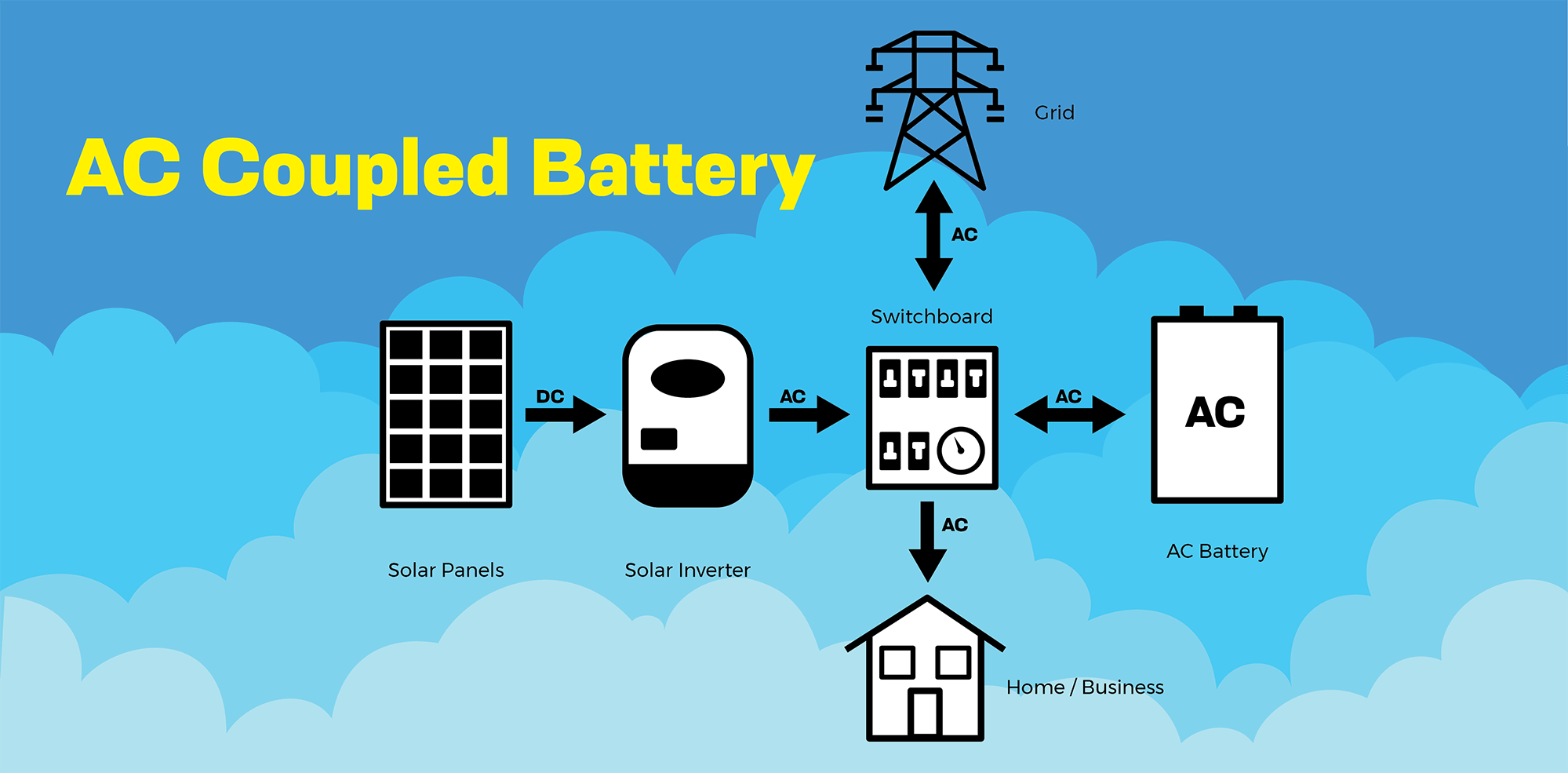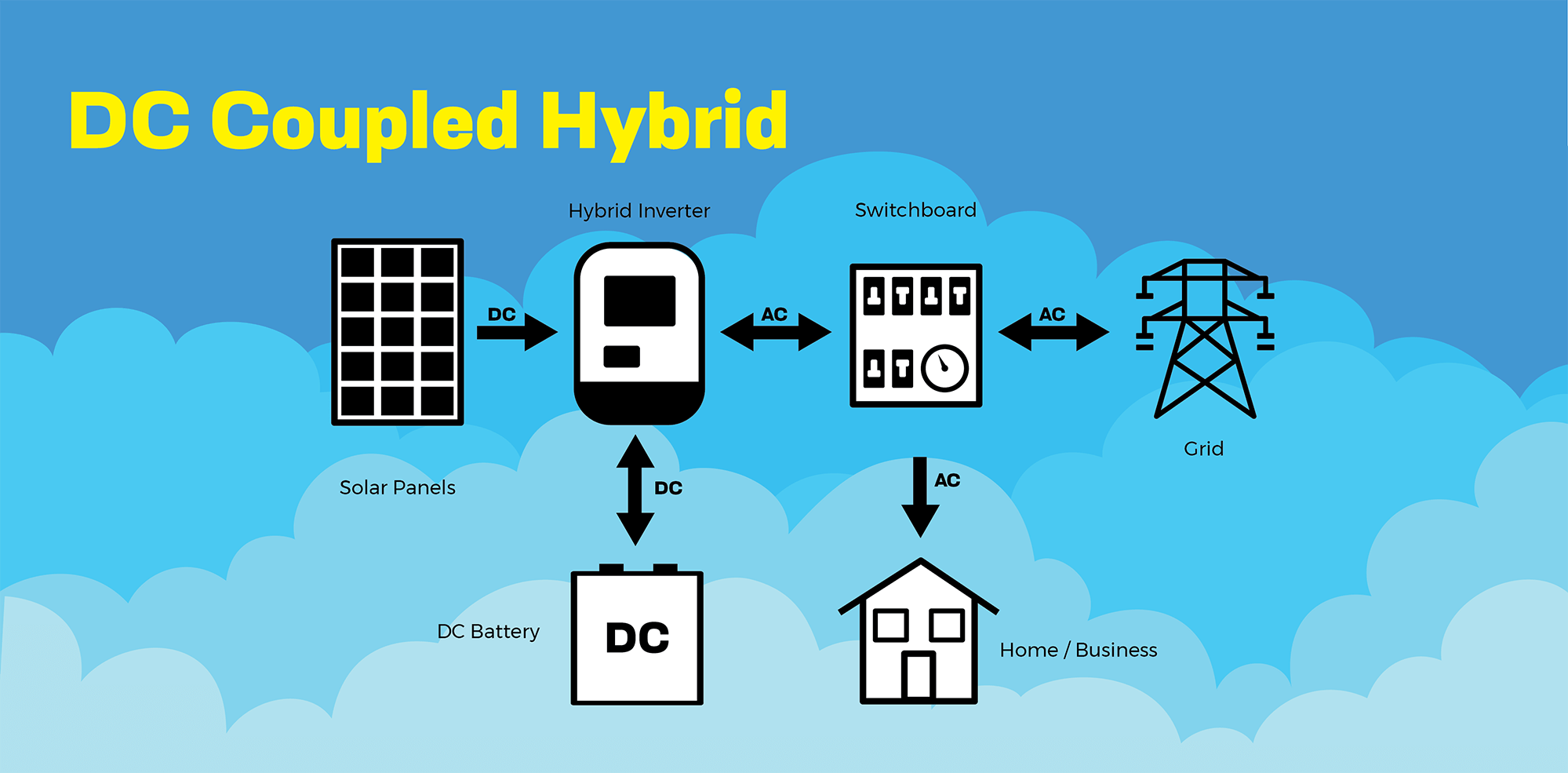AC & DC Coupled Solar Battery Systems
With the proliferation of solar storage throughout the industry we thought it would be a good idea to take a look at the difference between AC & DC coupled solar battery systems. There is a good chance you have heard of AC and DC electricity before but you might not be aware of what these terms actually mean.
DC stands for Direct Current and much like the name implies this is when the electrical current flows in one direction only. AC, or Alternating Current, has the electrical current moving back and forth from the source to the destination such as an appliance. While AC is the standard for Australian power networks solar panels actually produce DC power.
So if our solar panels are producing DC power how does our home or business turn it into AC power so we can use it? The simple answer is your solar inverter which as the name suggests takes the DC power from your panels and inverts it to AC power for your home. However when it comes to solar batteries the most efficient method of storage is to use DC power.

